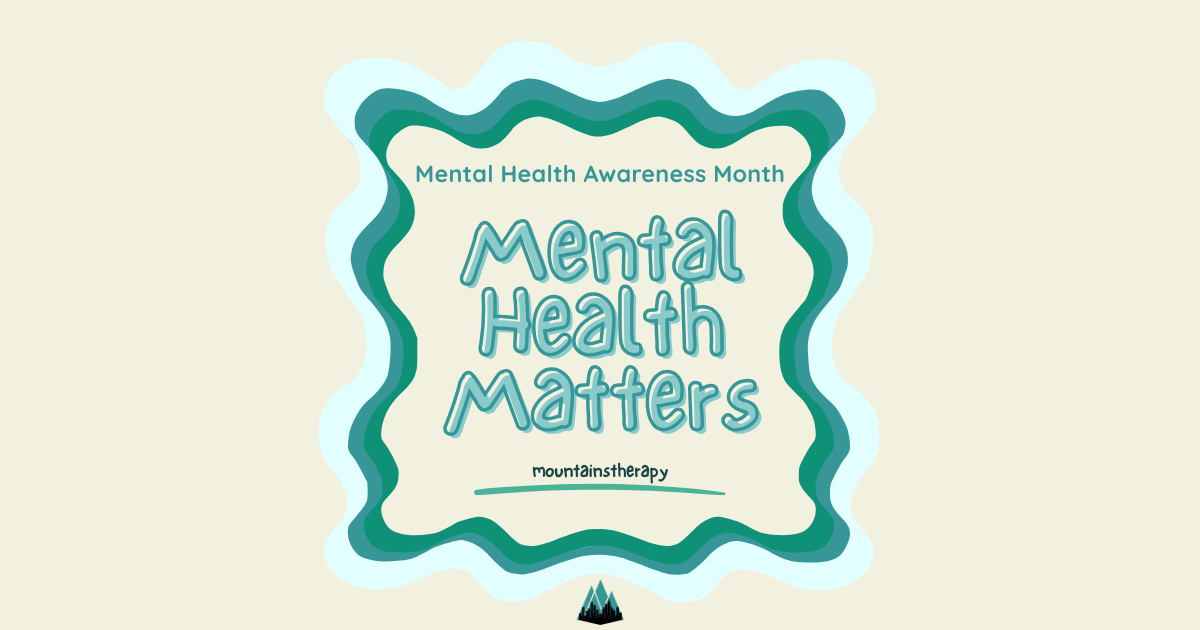Mental Wellness Month: How Therapy Supports Stress, Burnout & Emotional Balance
Learn more about Individual Therapy and Couples Therapy.
In This Blog, You’ll Learn:
✅ When is mental wellness month and why it matters
✅ What mental wellness looks like in everyday life
✅ How to achieve mental wellness through therapy and intentional care
✅ A checklist to assess stress and burnout
✅ What are mental wellness goals and how therapy helps define them
✅ How therapy improves emotional balance, boundaries, and resilience
✅ Where to find the best stress therapist near me or mental health counseling near me in Montclair, NJ
Why Mental Wellness Month Matters
When is mental wellness month?
Every May, we take time to reflect on how mental health influences every part of our lives—from work and parenting to identity and relationships. Mental wellness isn’t just the absence of anxiety or depression—it’s about building self-awareness, developing coping skills, and creating a life that aligns with your values. At Mountains Therapy in Montclair, NJ, we help clients explore how to mental wellness by taking small, meaningful steps toward balance and emotional clarity.
What Are Mental Wellness Goals?
Therapy helps you define what are mental wellness goals because mental health isn’t just about surviving; it’s about thriving. Whether you’re feeling “off” or overwhelmed, therapy is a space where you can define what mental wellness means to you.
Common goals include:
✔️ Learning to set boundaries without guilt
✔️ Building a sustainable self-care routine
✔️ Processing unresolved emotions or trauma
✔️ Strengthening relationships and communication
✔️ Creating a life aligned with your values and identity
Self-Checklist: Am I Burnt Out or Just Stressed?
Therapy can help you develop what are mental wellness activities that bring regulation, rest, and relief. Use this checklist to tune into your body and mind. If several of these resonate, you may be experiencing chronic stress or emotional burnout and therapy can help you reset.
🧠 Physical Signs
☐ I feel exhausted no matter how much I rest
☐ I have frequent headaches, muscle tension, or jaw clenching
☐ I’ve noticed more stomach issues, nausea, or IBS symptoms
☐ My sleep is off either too much or not enough
☐ I’m getting sick more often, or it takes longer to recover
☐ I feel physically heavy or like I’m dragging through the day
☐ I notice changes in appetite, eating more or less than usual
💭 Emotional Signs
☐ I feel irritable, impatient, or easily overwhelmed
☐ I cry more often or I feel emotionally numb
☐ I have a short fuse with people I care about
☐ I feel disconnected from joy, hobbies, or people
☐ I experience a sense of dread before each day begins
☐ I feel guilt or shame for not being “productive enough”
☐ I don’t feel like myself
🌀 Mental & Cognitive Signs
☐ I’m constantly overthinking or second-guessing myself
☐ My thoughts race at night and keep me from sleeping
☐ I struggle to focus or remember things
☐ I avoid making decisions because it feels overwhelming
☐ I feel mentally foggy or checked out
🚩 Behavioral Signs
☐ I’m avoiding people, conversations, or responsibilities
☐ I scroll, binge, or distract myself to numb out
☐ I’ve stopped exercising, cooking, or taking care of myself
☐ I’ve withdrawn from hobbies or social plans
☐ I’ve been relying more on caffeine, alcohol, or food to cope
☐ I fantasize about quitting everything or disappearing
How Does Mental Health Affect Wellness?
Many clients ask, how does mental health affect wellness? The short answer: in every way.
- It shapes your energy and relationships
- It influences your ability to focus, cope, and feel grounded
- It impacts your nervous system, immune response, and overall health
And yes, it even shapes how mental wellness impacts career choice. When you feel emotionally exhausted or unsupported, it becomes harder to show up confidently, set boundaries at work, or pursue your goals. This is also why mental wellness is important not just personally but professionally. In fact, why is mental wellness important in the workplace is one of the top reasons people begin therapy: they want to succeed without sacrificing their well-being.
Therapy as a Path to Achieve Mental Wellness
If you’re wondering how to achieve mental wellness, therapy is a powerful first step. At Mountains Therapy, we help clients:
✔️ Build emotional regulation tools
✔️ Process unresolved grief, trauma, or burnout
✔️ Set healthy boundaries in relationships and work
✔️ Strengthen self-trust and confidence
✔️ Reconnect with themselves and their purpose
We also explore why is mental health and wellness important across different stages of life. Whether you're parenting, healing from trauma, or navigating identity changes, your wellness matters and deserves care.
Our Services at Mountains Therapy
We proudly provide affirming, personalized care for individuals, couples, and families. Our Specialties Include:
✔️ Therapy for
Stress, Burnout, and Anxiety
✔️
Cognitive Behavioral Therapy (CBT)
✔️ PTSD
Trauma Therapy for
Trauma Recovery
✔️ Therapy for
Grief, Loss, and Life Transitions,
✔️
LGBTQIA+ Affirming Therapy
✔️
Couples Counseling,
Relationship Issues and Communication Support
✔️
Postpartum Mental Health & Parenting Support
✔️ Support for
Chronic Illness and Identity Shifts
Whether you’re searching for what are mental wellness activities, or just trying to feel more like yourself again, therapy can help guide the way.
Prioritize You This May
All humans deserves mental peace. You don’t need a diagnosis to deserve support. At Mountains Therapy, we help you go from surviving to thriving one session, one breath, one shift at a time. Reach out us today to start therapy and prioritize your mental wellness this May—and every month after.














